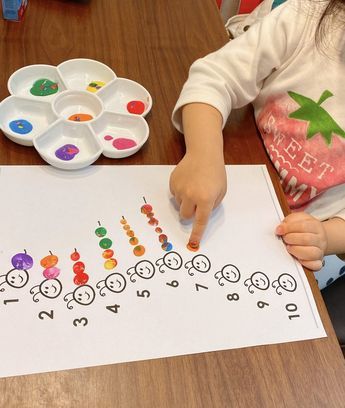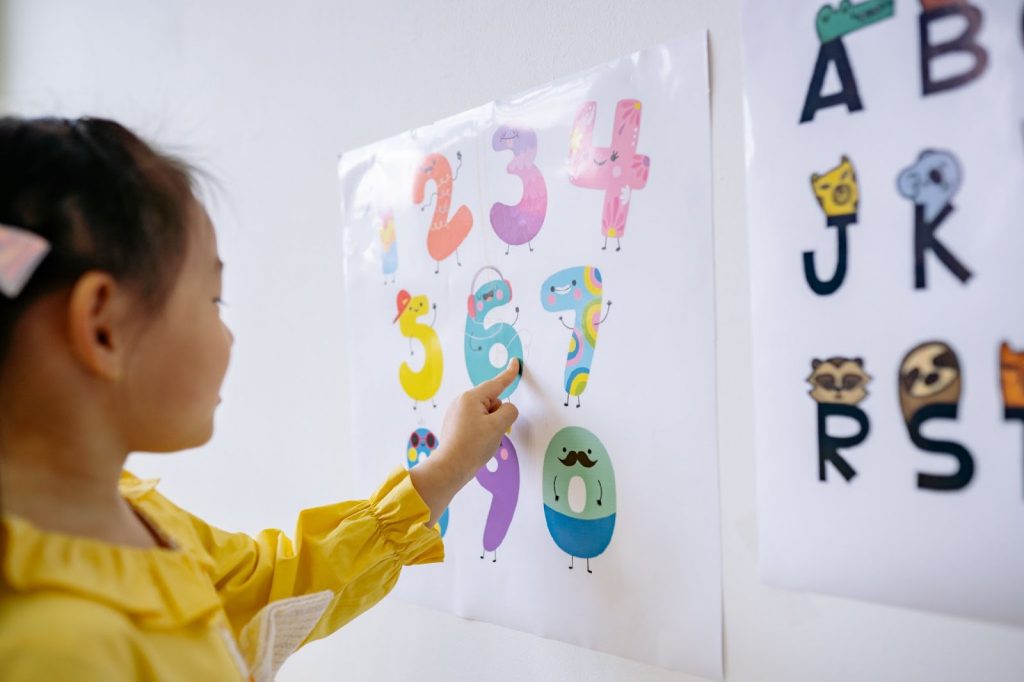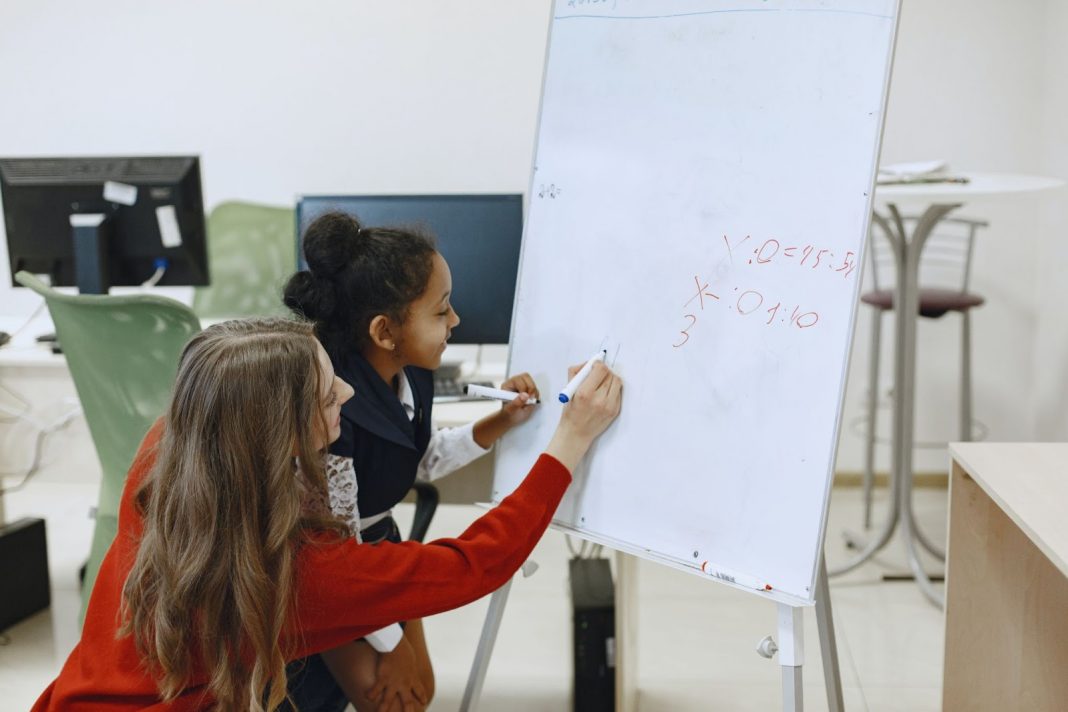Have you ever wondered why math is so important in our lives? It’s because math is a fundamental tool used to describe the world around us. You might not need to solve complex equations daily, but math helps us understand patterns and relationships in everything from the weather to the stock market. And that understanding is critical for making sound decisions in our personal and professional lives.
Math & ELA | PreK To Grade 5
Kids see fun.
You see real learning outcomes.
Watch your kids fall in love with math & reading through our scientifically designed curriculum.
Parents, try for free Teachers, use for free
With that in mind, it’s no surprise that experts believe kids should start learning math as early as possible. This blog post will explore some of the benefits of early math education and why it’s important for kids to get a head start on this essential subject.
Why Is Math Important for Kids to Learn?

Many people today are concerned about their math abilities. According to a study in the National Library of Medicine, 93% of adults in the United States experience some level of math anxiety. Incorporating math into your child’s daily routine can help them develop a positive relationship with this essential subject.
Here are ten reasons why math is important for kids to learn.
1. Helps Kids Develop Critical Thinking Skills
As any parent knows, children are naturally curious creatures. They always ask why things are how they are and how they can change. This innate curiosity is what helps children develop critical thinking skills. And there is no better subject for fostering critical thinking than math. Math forces kids to slow down, analyze a problem, and devise a logical solution.
It also encourages them to think outside the box and consider different approaches to a problem. As a result, math can help children develop the essential skills they need to succeed in school and life.
2. Develops a Healthy Brain
A study published in the Journal of Neuroscience has shown that children who engage in regular math activities have healthier brains. It was found that children who regularly solve math problems have increased activity in brain regions associated with attention and focus. In addition, the children showed greater efficiency in neural connections between these regions.
This suggests that math can help children develop a stronger attention span and improve their focus. This can lead to better academic performance and improved cognitive functioning.
Related Reading: Best Brain Teasers for Kids to Enhance Focus & Memory
3. Teaches Kids How to Handle Failure
In life, there will always be times when we fail. It’s a natural part of the human experience. However, it’s crucial to understand how to deal with failure in a healthy way. Math can teach children how to handle failure in a constructive way.
When kids make a mistake while solving a math problem, they can use it as an opportunity to learn and improve their skills. This helps them develop a growth mindset and realize that failure is not the end but simply a part of the learning process.
4. Helps Kids Understand the World Around Them
Math is all around us, whether we realize it or not. It’s a fundamental part of the natural world and plays a vital role in our everyday lives. By understanding math, children can better understand the world around them.
For example, math can help kids understand how long it will take to get somewhere, how much money they need to buy something, or how big or small something is. These are essential skills that children can use in their everyday lives.

5. Encourages Kids to Be Creative
While math may not seem like a creative subject, it encourages children to be creative. This is because math is all about finding different solutions to problems. Students must think outside the box and develop innovative solutions to solve math problems. This process requires them to draw on their imagination and think creatively.
In addition, math can also help children develop their spatial awareness. This is the ability to visualize objects in three-dimensional space. Children can develop creative problem-solving skills by understanding how to visualize objects.
6. Teaches Kids How to Make Decisions
Making decisions is a skill that we use every day, often without even realizing it. Interestingly, math can actually help children develop their decision-making skills. This is because math requires kids to weigh different options and choose the best solution.
This process helps them learn to consider all the factors involved in a decision and make choices based on logic. For example, when kids are deciding how to spend their allowance, they need to consider how much money they have and what they want to buy. This decision-making process is an important life skill that math can help children develop.
7. Boosts Self-Confidence
As a parent, you want your child to grow up confident and sure of themselves. You can help them develop these important qualities by enrolling them in a math program. At first, they may balk at the thought of learning equations and dealing with numbers. However, as they begin to master the material, they will start to feel a sense of pride in their accomplishments.
This boost in self-confidence will spill into other areas of their life, and they will begin approaching new challenges with optimism and enthusiasm. Besides, math can also help children develop a sense of perseverance. When they encounter a difficult problem, they will be more likely to stick with it and find a solution.
8. Encourages Kids to Be Persistent
As we mentioned before, math can help children develop a growth mindset. This is the belief that intelligence is not fixed but can be improved with effort. Children with a growth mindset approach challenges with persistence and determination.
They understand that failure is not the end but a part of the learning process. This encourages them to keep trying even when they encounter difficulty. As a result, they are more likely to persevere in the face of challenges and achieve success in their lives.
9. Helps Kids Develop Important Life Skills
Though it may not seem like it sometimes, math is an essential life skill, as well. It provides a way of thinking that can apply to everyday situations. For example, basic arithmetic is necessary for budgeting and managing finances. Percentages and fractions are often used in cooking and measurements.
But math isn’t just about numbers; and it also helps to develop important problem-solving and critical-thinking skills. These skills are more important than ever in today’s increasingly complex world. That’s why kids need to build a strong foundation in math from an early age.
10. It’s Fun!
Last but not least, math can be downright fun! There are all sorts of games and activities that can make learning math enjoyable. Many learning apps and websites make math more engaging for kids. For example, some learning platforms use gamification to make math more enjoyable for kids.
With all these benefits, it’s clear why math is important for kids to learn. A good math program will spark your child’s lifelong love of learning. It will help them develop essential skills in all areas of their lives.
Related Reading: How to Make Math Fun for Kids – 15 Best Ways
Why is Math Important in Life?

What is the importance of math in everyday life? It helps develop your logical reasoning abilities and enhance your problem-solving skills. Math is a subject that can sometimes be seen as dry and difficult. However, its applications are far-reaching and important in daily life. Here are some examples of why math is important in life:
- Personal finance: From balancing a checkbook to investing in stocks and bonds, personal finance requires a strong understanding of mathematical concepts.
- Cooking: Recipes are essentially a set of instructions for preparing a dish. They require precise measurements and an understanding of the relationship between ingredients.
- Telling time: Telling time requires understanding numbers and the ability to perform basic operations such as multiplication and division. No matter what career you end up in, being able to tell time is an essential life skill.
- Universal language: Math is a universal language we can use to communicate across cultures. It is a precise and unambiguous way to describe relationships and solve problems.
- Used in every career: No matter your chosen career, you will likely use math in some capacity. For example, many careers in the sciences, such as engineering and medicine, require a strong understanding of mathematical concepts.
Even simple grocery shopping requires basic math skills, such as calculating discounts and comparing prices. Therefore, it is clear that math is an essential part of everyday life. With its numerous applications, it is a subject everyone should strive to understand and master.
Related Reading: Best Math Books for 3rd Graders
How Can We Improve Math Education?
Making math education more effective has been a persistent problem. But with new technologies and approaches, we might finally be able to turn the tide. Here are a few ideas that could help.
Real-World Applications
Math has always been a complex subject for many students. A lot of this difficulty comes from how math is taught in schools. To truly understand math, students need to see how it is used in the real world. Too often, however, math is taught as abstract principles with no connection to the outside world. As a result, students struggle to see the point of what they are learning and quickly lose interest.
New and innovative approaches to math education can help to address this problem. One such approach is teaching math through real-world examples. This method is particularly effective in assisting students in understanding and retaining mathematical concepts.
Incorporate Technology
Technology can also be a valuable tool in improving math education. Several excellent math apps and websites make learning fun and engaging. These resources can supplement traditional instruction and help students improve their math skills.
Kids like playing video games, so incorporating math into popular games could teach math concepts effectively. This approach has been shown to improve student motivation and engagement.
Ask Interesting Questions
Who says math has to be boring? Asking interesting questions is a great way to make math more engaging for students. While most math textbooks are filled with dry and uninteresting problems, several websites and books offer interesting and challenging math problems.
These types of problems can help students develop critical thinking and problem-solving skills. They also make math more enjoyable for students, leading to improved performance.
Use Manipulatives
Manipulatives are physical objects that teachers or parents can use to help students learn math concepts. Common manipulatives include things like blocks, pattern tiles, and geoboards. Manipulatives can be particularly helpful for young students learning math concepts.
Manipulatives’ visual and tactile nature can help students understand and remember mathematical ideas. Additionally, one can use manipulatives in various ways to support different learning styles.
Let’s Make Math More Fun for Kids!
There you go! You now know why math is important for kids to learn and how we can make math more fun for them. Give it a try with your kids and see how they respond. Use fun games, activities, and apps to help them understand math concepts and see how math is used in the real world. We can help our kids develop a lifelong love of learning with a little effort.
Related Reading: Best Math Apps for Kids
Frequently Asked Questions (FAQs)
What age is appropriate for kids to start learning math?
Math concepts can be introduced to kids as early as three. However, formal math instruction usually begins in kindergarten or first grade. It is a good idea to start kids with basic concepts such as counting, shapes, and measurement. These concepts provide a foundation for more advanced math skills.
How can I help my child with math at home?
You can do several things to help your child with math at home. One is to provide opportunities to practice what they are learning in school. You can do this by setting up simple counting or measurement activities.
You can also help them to develop problem-solving skills by working on puzzles or games together. Finally, you can encourage them to ask questions and explain their thinking when working on math problems.
What can I do if my child doesn’t like math?
Sometimes, kids dislike math because they find it difficult. If this is the case, you can try to help them by finding different ways to explain the concepts. You can also look for resources such as games or apps that make learning math fun.
Finally, praise your child for their efforts and progress, even if they struggle. This will help them to develop a positive attitude toward math.
























